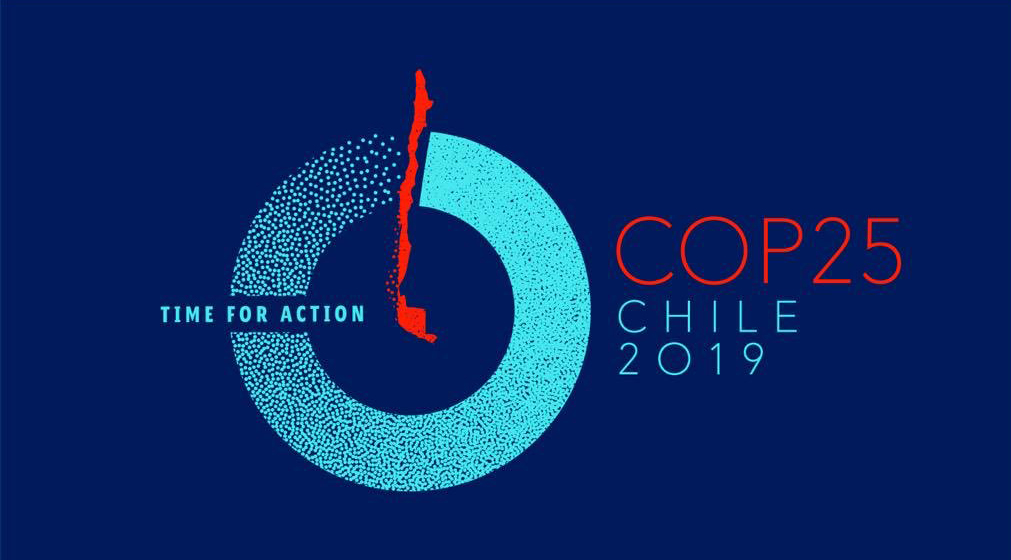COP25: The voices of the earth as well as of the young, poor and marginalized are crying for more urgent climate action around the world
- Published:

The voices of the earth as well as of the young, poor and marginalized are crying for more urgent climate action around the world
Policy Recommendations for COP25, Madrid
Executive Summary
Pressure on the land and the world's most vulnerable communities is intensifying at an alarming rate, with severe impacts of the climate crisis observed globally. The burning and clearing of the Amazon rainforest, and other large forest ecosystems around the world from California to the Democratic Republic of Congo and Siberia, undermines the sacredness of the land and it diminishes the earth’s capacity to absorb the increasing emissions in the atmosphere. We’ve also witnessed the worst cyclones in generations in Southern Africa, Idai and Kenneth, which devastated many communities in Mozambique, Zimbabwe and South Africa, destroying roads, bridges, homes, livelihoods and taking away the lives of people who could not escape their path, thereby increasing poverty and inequality in those areas that were least prepared and hardest hit. We have now reached dangerous limits of carbon dioxide in the atmosphere, and this is a climate emergency.
It is time to re-evaluate our relationship with people and the earth and envision a sacred life and living earth. Recently, the Catholic Synod sent out a strong message to world leaders that inaction is a crime towards humanity and nature. Our faiths, therefore, compel us to a call for climate justice, accountability, peace, and the integrity of creation in its fullness.
Context
Water, air, the land and food are sacred! The latest Intergovernmental Panel on Climate Change (IPCC) Special Reports on 1.5°C and land have demonstrated how human development has exploited both people and planet. Most of this destruction exists because of our current unsustainable and wasteful economic system. Immediate, rapid and extensive transformation in our energy, land, and urban infrastructure, and growth-based, linear industrial systems is mandatory in keeping 1.5°C of warming above pre-industrial levels. The scientific and moral case for prioritizing radical action on climate change is clearer and louder than ever before!
On 2 - 13 December 2019, the twenty-fifth session of the UN Conference of the Parties (COP25) will take place in Madrid, Spain under the Presidency of the Government of Chile. The aim of the conference is to finalise the necessary measures that are needed to implement the Paris Climate Change Agreement from 2015 in its fullness. This include the call for all countries to revise and increase ambition in their national commitments and action plans ahead of 2020. Ahead of COP25, SAFCEI makes the following recommendations on what we should be seeing governments commit to:
- Divestment from fossil fuels and increased reinvesting in safe, affordable, reliable and sustainable energy systems. This needs to be done in a just and equitable manner to effectively address carbon emissions reduction targets. Nuclear power is unsustainable, expensive and its waste remains unsafe. We urge governments, businesses and other institutions, including major faiths, to take brave and ambitious actions towards addressing climate change while accelerating a just energy and development transition.
- We also recognize that climate adaptation alone is not enough. Therefore, countries represented should review the Warsaw International Mechanism on Loss and Damage (WIM on L&D) to ensure that it is fully operationalization and prioritization in the negotiations, to deliver the necessary financial flows for support, especially, to poor and marginalized communities, at risk to highly destructive weather events as we saw in our region, earlier this year.
- The IPCC land report highlight the damages caused to our ecosystems owing to the current unstainable agricultural practices including industrialised farming. Governments and other bodies need to review their policies and seek to promote sustainable food production such as agro-ecology farming systems that guarantees the right to food, proper nutrition and to a healthy environment.
- Indigenous communities are humanity’s chief custodians of the earth and many have laid their lives to protect their land and the ecosystems on which they depend. Evidence has proven how they have successfully lived in harmony with the land and we can draw lessons from their way of life. The rights, cultures, knowledge systems, lives of the indigenous people must be respected and consent sought.
We are in full support of the massive global mobilization of people around the world, including indigenous people and youth. The time for climate action is now! Failure to act urgently will increase the cost to build climate resilience and the likelihood of the severe, pervasive and irreversible impacts for our diverse and rich ecosystems as well as on people on the planet, our only common home.
Click here to download.
Click here to view our letter addressed to The President, the Honourable Cyril Ramaphosa; Minister of Environment, Forestry and Fisheries, the Honourable Ms Barbara Creecy; and Minister of Mineral Resources and Energy, the Honourable Mr Gwede Mantashe.
Who we are

SAFCEI (Southern African Faith Communities’ Environment Institute) is a multi-faith organisation committed to supporting faith leaders and their communities in Southern Africa to increase awareness, understanding and action on eco-justice, sustainable living and climate change.
Featured Articles
-

South Africa: Who Ends Up Paying If DMRE Cooks the Price of Nuclear Power?
-

South Africa’s nuclear energy expansion plans continue to draw criticism, environmental NGOs chew over legal challenge
-

Earthlife Africa and SAFCEI respond to latest unsettling nuclear news regarding the ministerial determination
-

Open Wing Alliance Africa (Virtual) Summit 2023
-

The Green Connection and SAFCEI respond to energy minister's divisive and deflecting comments
-

Job Vacancy: FLEAT Coordinator







